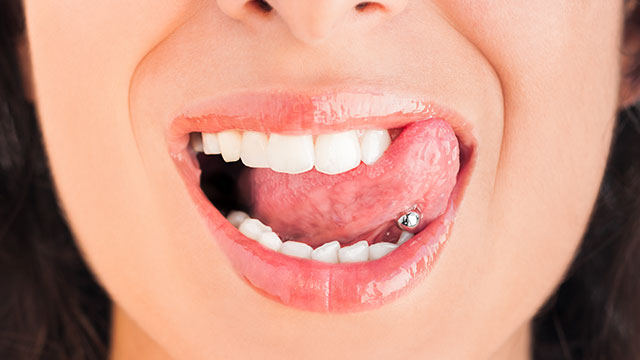-
-

BRUSHING & FLOSSING
How to BrushWhat Is the Right Way to Brush?
Proper brushing takes at least two minutes — that's right, 120 seconds!...

BRUSHING & FLOSSING
How To FlossWhat is the Right Way to Floss?
Proper flossing removes plaque and food particles in places where a toothbrush cannot easily reach... -
Science & Innovation
- Home
- Oral Health
- How Mouth Spray Helps Dry Mouth


Have you ever felt that your mouth was dry as a desert? The simplest things like swallowing or talking become difficult – and relief would feel like finding an oasis. If you’ve experienced this feeling, you might have a dry mouth, technically called xerostomia. Dry mouth is a common oral health condition associated with reduced saliva. It can cause quite troublesome difficulties with specific oral functions – as well as serious oral health issues.
Fortunately, a dry mouth spray can provide temporary relief for an uncomfortably dry mouth. In this article, we’ll explain how they work and why they’re good for short-term relief.
Mouth spray basics
Mouth sprays act as a saliva substitute to relieve dryness. Though not a perfect match for the beneficial saliva your body produces, a mouth spray has its benefits. By leaving a protective film of moisture on your oral tissues, a spray can temporarily relieve that dry feeling in your mouth. Better Health Channel suggests that those suffering from a dry mouth may want to use an over-the-counter mouth spray for general self-care. However, they add that it is best to be guided by your doctor and dental professional.
Advantages of mouth sprays
Mouth sprays can be super-convenient; you can temporarily relieve your dry mouth symptoms in seconds. Plus, they have other benefits:
- They’re portable, so you can spray your mouth while you’re on the go.
- You can use mouth sprays as often as needed, depending on the product (your health professional might provide instructions for how many times to use a mouth spray daily.)
- By moisturising your mouth, you can relieve symptoms like difficulty speaking, chewing or swallowing.
- . Mouth sprays may help to prevent a build-up of bacteria which can lead to oral health problems.
Long-term solutions for a dry mouth
Though dry mouth sprays provide welcome short-term relief, they’re not a dry mouth cure. The effects of the spray will wear off quite quickly, and your mouth will feel dry again. For long-term relief, make sure you visit a health professional so they can identify and treat the underlying cause of your dry mouth. Some of the many underlying causes include:
- Anxiety and stress
- Dehydration
- Medication side effects
- Autoimmune and neurological disorders
- Conditions such as diabetes, HIV/AIDS, addictions and sleep disorders
Oral hygiene with a dry mouth
It’s always essential to maintain good oral hygiene and schedule regular visits to your dental professional. Still, it’s even more essential if you’re suffering from a dry mouth. A dry mouth puts your mouth at risk of cavities and other oral conditions, so it’s critical to take good care of your teeth and gums at this time.
In summary, there’s no need to suffer unnecessarily. Mouth sprays can provide excellent short-term relief from that desert-like feeling in your mouth. However, it is imperative you seek help from a health professional to find out the underlying cause of your problem. Finally, make sure you take extra care of your oral health to keep you free of any avoidable dental issues.
Oral Care Center articles are reviewed by an oral health medical professional. This information is for educational purposes only. This content is not intended to be a substitute for professional medical advice, diagnosis or treatment. Always seek the advice of your dentist, physician or other qualified healthcare provider.
Related Articles

We know that dairy keeps your bones strong and healthy, but is milk good for your teeth? The answer is a resounding yes, and here's why.

You take your child to their dental appointment, expecting smiles all around and a clean bill of health.

Related Products

Helping dental professionals
More professionals across the world trust Colgate. Find resources, products, and information to give your patients a healthier future








